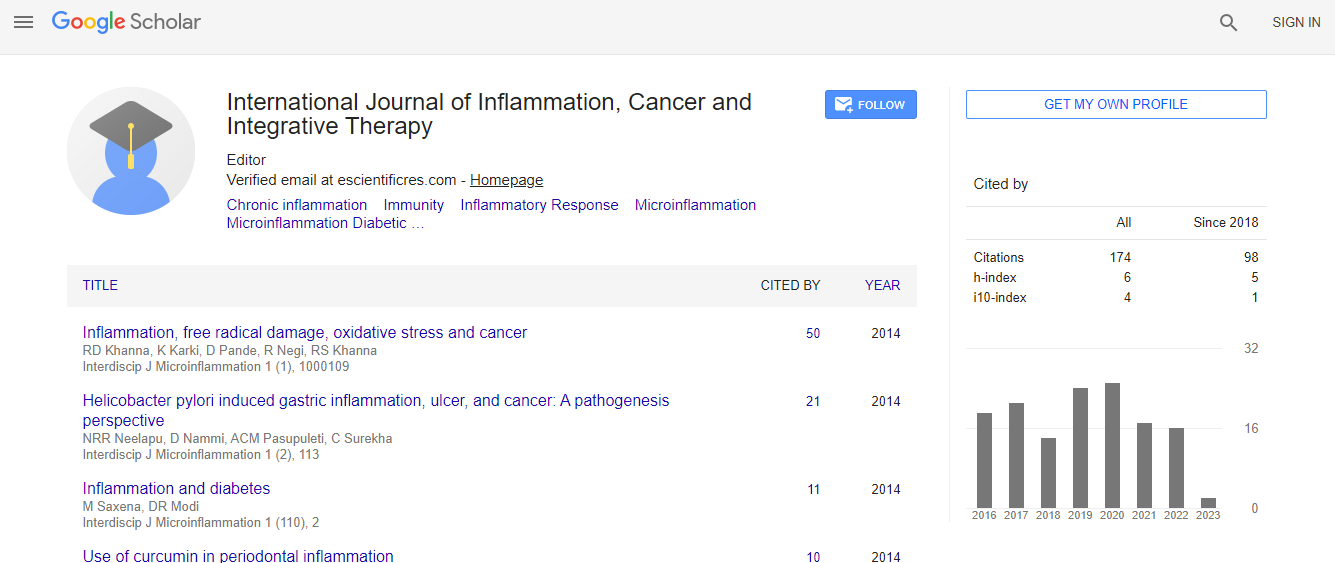Commentary
Association of MCP1-2518A/G and CCR2 âÃâ¬ÃâV64I Polymorphisms and Vasoocclusive Crisis among Sickle Cell Anemia Tunisian Patients
Chaouch L1*, Kalai M1, Jbara BM1, Darragi I1, Chaouachi D1, Hafsia R2, Ghanem A3 and Abbes S1
1University of Tunis El Manar, Shepherd of Molecular and Cellular Hematology Institute of Tunis, Laboratory, Tunis, Tunisia
2University of Tunis El Manar, Aziza Othmena Hospital of Tunis, Laboratory of Clinical Hematology, Tunis, Tunisia
3University of Tunis El Manar, Hospital of Traumatology and Great Brules, Department of Biochemistry, Ben Arous, Tunisia
- *Corresponding Author:
- Leila Chaouch
Laboratory of Molecular and Cellular Hematology
Institute Pasteur of Tunisia
Tel: +216-28141515
E-mail: Leila.chaouch@gmail.com
Received date: June 10, 2014; Accepted date: August 02, 2014; Published date: August 04, 2014
Citation: Chaouch L, Kalai M, Jbara BM, Darragi I, Chaouachi D, et al. (2014) Association of MCP1-2518A/G and CCR2 –V64I Polymorphisms and Vaso-occlusive Crisis among Sickle Cell Anemia Tunisian Patients. Microinflammation 1:104. doi: 10.4172/2381-8727.1000104
Copyright: © 2014 Chaouch L, et al. This is an open-access article distributed under the terms of the Creative Commons Attribution License, which permits unrestricted use, distribution, and reproduction in any medium, provided the original author and source are credited.
Abstract
Objective: To further define the genetic basis of clinical variability in sickle cell anemia (SCA), we focus on the known functional polymorphisms of MCP-1 and CCR2 and we also discuss their associations with complications of SCA including vaso-occlusive crisis (VOC) and infection. Methods: 100 SCA patients were enrolled in this investigation. The sample of patients was divided into two groups according to the presence or the absence of each complication. Polymorphisms studied namely: MCP-1-2518 A/G and CCR2 –V64I were genotyped for all subjects using PCR/RFLP. To test for trait association with the candidate SNPs, genotype and allele frequencies between cases (group with complication) and controls (group without complication) were compared using Pearson’s chi_square test with a significance threshold of p<0.05 (compare 2, version 1.02). Results: Interestingly, we found a significant associations between MCP1-2518 A/G and V64I of CCR2 and occurrence of vaso-occlusive crisis among SCA patients p<0.05. These associations have not been described previously. Conclusion: The novelty of this report is that it is the first time that a similar study was made on the Tunisian sickle cell population and that the results show a novel association between functional polymorphisms namely: MCP1-2518 A/G and V64I of CCR2 and vaso-occlusive crisis among SCA Tunisian patients.

 Spanish
Spanish  Chinese
Chinese  Russian
Russian  German
German  French
French  Japanese
Japanese  Portuguese
Portuguese  Hindi
Hindi 
